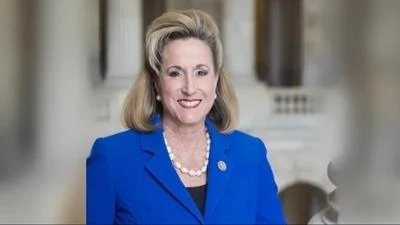Police | Unsplash by Daniel Tafjord
Police | Unsplash by Daniel Tafjord
O’Brien became interested in the practice of law at his first traffic stop.
“I was 16 years old and the man who was running for sheriff came to my car after the police officer left,” O’Brien remembers. “My dad’s car had the candidate’s sticker on it, and he told me that since I was a constituent, he could arrange for the ticket to disappear.”
When O’Brien recounted the story to his father, his dad was furious.
“He called the man and told him that law should work for everyone,” O’Brien says. “That was my first lesson in equal protection, and it stuck.”
Following law school, O’Brien experienced another defining moment in his career in the face of inequity.
“At breakfast at a local business organization, the keynote speaker used the appointment of the honorable Fernando Gaitan’s (J.D. ’74) appointment as a springboard to everything wrong with the justice system based on his race. I walked out and turned in my notice without another job to go to.”
“UMKC School of Law prides itself on producing practice-ready lawyers, and that was true in my case.” - Sean O'Brien
A month later, O’Brien interviewed with Chief Public Defender Jim Fletcher.
“It felt like coming home,” O’ Brien says. “They offered me a job on the spot. I took it and never looked back.”
In 1988 Senator Tom Eagleton, Robert Popper, dean, UMKC School of Law , professors Ellen Suni and Nancy Levit wrote a grant to create the Missouri Capital Punishment Resource Center to recruit and train good lawyers to assure that people sentenced to death have access to legal representation when they need it. Already recognized as a tireless advocate for the wrongly convicted, they hired O’Brien to run it.
In some ways O’Brien feels that he never really left UMKC. After directing the Missouri Capital Punishment Resource Center for 15 years, Dean Emerita Ellen Suni hired him as a visiting professor. After two semesters he applied to be the permanent criminal law professor. He finds that if someone finds work that they are passionate about, it’s not really work, it’s a calling.
“I am proud of the work I have done, but my feelings about it are complicated,” O’Brien says. “It is much harder to free an innocent person than it should be and much too easy to wrongly convict them in the first place. You never lose sight of how much these innocent men and women have lost during their years or decades of wrongful incarceration, and how deficient our social safety net is.
“It’s a struggle for them to find work, health care and housing. Some do find good jobs and create happy, productive lives, but they all suffer some degree of post trauma stress injury, especially people exonerated from death row. The day they walk out is just the beginning of a new struggle.”
O’Brien considers his most significant professional accomplishment the Supreme Court victory in Schlup vs. Delo, a landmark case which set the standard for innocence claims in federal habeas corpus proceedings.
“It’s impossible to brief an innocence argument anywhere in the country without relying on Schlup. It has helped free hundreds of people from prison.”
He credits his education at the UMKC School of Law for providing the foundation for his success.
“UMKC School of Law prides itself on producing practice-ready lawyers, and that was true in my case.”
But his proudest accomplishment is not related to his career.
“I have two amazing daughters who are brilliant, creative and curious,” O’Brien says “I am prouder of them than anything I have done professionally.”
Original source can be found here.




 Alerts Sign-up
Alerts Sign-up